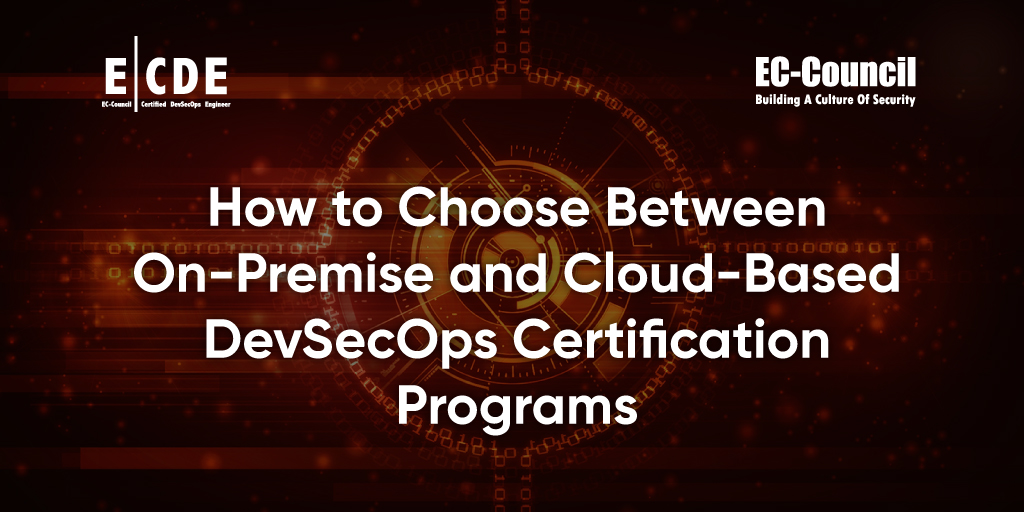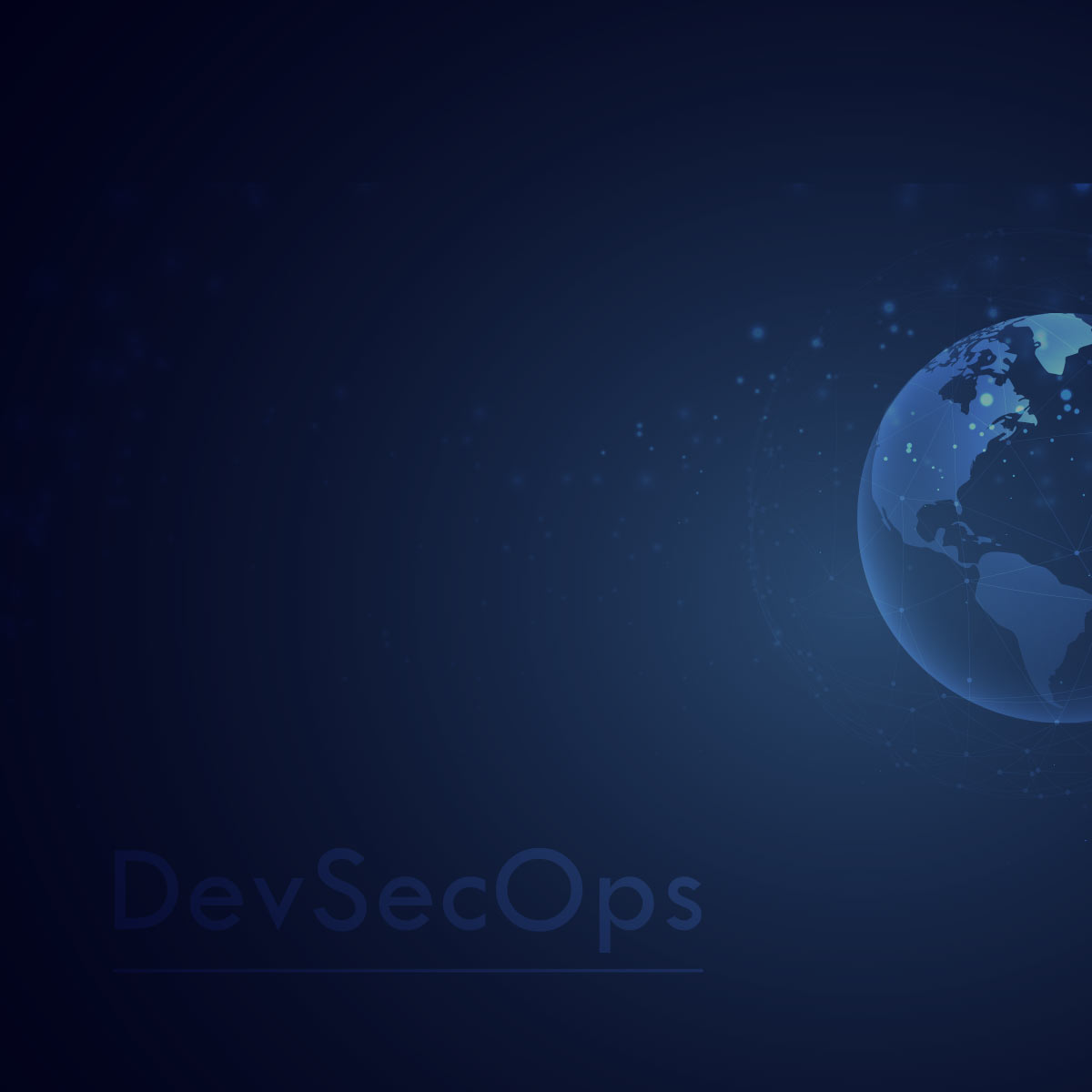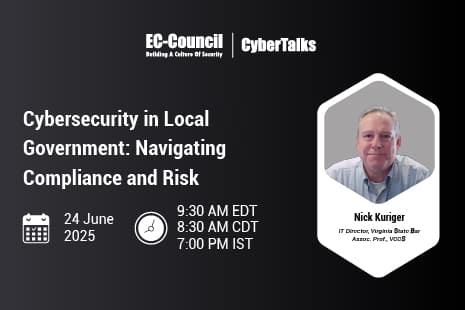The field of DevSecOps, like its predecessor DevOps, is constantly growing and evolving—and so is the list of DevSecOps certification programs. A DevSecOps certification validates that IT professionals can integrate security into their software development practices.
Obtaining a DevSecOps certification is an excellent way for students to break into the DevSecOps field or affirm their existing knowledge and experience. With the rise of cloud computing, however, DevSecOps and DevOps engineers now choose between two types of DevSecOps certifications: those that teach about on-premises IT environments and those that teach cloud-based DevSecOps.
If you’re considering a DevSecOps certification, this article is for you. We’ll review everything you need to choose between on-premise and cloud DevSecOps courses, from their differences to selecting the right program.
Understand the Differences Between On-Premise and Cloud
When choosing the best DevSecOps certification, the first step is to understand the differences between on-premise and cloud DevSecOps:
- On-premise DevSecOps refers to implementing DevSecOps and DevOps practices within an organization’s internal IT infrastructure. In an on-premises IT model, the business has complete ownership and control of the environment, from servers and endpoint devices to networks and storage. This gives the organization greater flexibility regarding how it implements the DevSecOps model.
- Cloud-based DevSecOps refers to implementing DevSecOps and DevOps practices within a public cloud environment, such as Amazon Web Services or Microsoft Azure. In cloud-based DevSecOps, DevOps engineers can leverage cloud-based tools, services, and platforms to help them integrate development, security, and operations more tightly. These may include automation software, monitoring tools, collaboration platforms, etc.
Although many businesses have migrated entirely to the cloud, others remain on-premises. Still, others use a hybrid setup where only some of their infrastructure is in the cloud. Before proceeding, consider which of on-premise and cloud best matches your interests or skill set. You may wish to find a DevSecOps certification that focuses only on one or the other, focuses on both, or even specializes in a particular public cloud environment.
Consider Your Learning Style
When choosing between on-premise and cloud certifications, different students will have different preferences, situations, and personal obligations that make certain options a better fit. The alternatives you have here include the following:
- Asynchronous online learning: Students who work full-time or have a busy schedule may do best with online lectures that they can learn from anywhere, anytime. Labs and deadlines may be more flexible, and students can interact with instructors and peers at their own pace.
- Synchronous online learning: Students who prefer a more traditional learning environment but still want the flexibility of online courses may prefer a synchronous learning option. In this setup, students virtually attend lectures online at a specific time every week, which allows them to interact with the instructor.
- In-person learning: DevSecOps certifications may offer traditional in-person learning options depending on your location. Some programs have even partnered with degree-granting institutions to offer credit for students enrolled in particular colleges and universities.
Analyze the Content of the DevSecOps Certification
Once you’ve decided on the right learning style for your DevSecOps certification, you must examine potential on-premise and cloud courses for their content. Students should learn about the definition and purpose of DevSecOps and how it differs from the standard DevOps methodology. Below are some other criteria to consider:
- DevSecOps stages: The DevOps and DevSecOps pipeline contains a series of stages: planning, coding, building, testing, releasing, deploying, operating, and monitoring. Your chosen DevSecOps certification should discuss each stage in detail.
- DevSecOps tools: The DevOps and DevSecOps methodologies use various software tools and platforms. The purposes of these tools include automation, continuous integration/continuous delivery (CI/CD), code reviews, threat modeling, logging and monitoring, vulnerability scanning, penetration testing, and more. The best DevSecOps certifications will include practical instruction on using some of the most popular DevOps tools.
Evaluate the Course Requirements
Beyond the content of on-premise and cloud courses, you should examine how a potential DevSecOps certification teaches you this material and evaluates your understanding of it. Consider issues such as:
- Theoretical vs. practical: Does the program operate on a strictly theoretical, by-the-book approach or offer practical laboratory instruction for hands-on learning? The best DevSecOps certifications will likely offer a mix of both approaches to best prepare you for real-world success.
- Final exam: How does the program evaluate you upon course completion? What is the structure and length of the final exam? Does it contain multiple-choice questions, essays, or some other format entirely? What are the passing criteria necessary to obtain the certification?
- Intermediate assignments: Besides the final exam, what other obligations do students have throughout the course? Are there homework or lab assignments to turn in? What are these assignments’ nature, and how often are they due?
Determine the Cost and Time Commitment
Lastly, cost and time commitment are crucial (yet often overlooked) issues when choosing between DevSecOps on-premise and cloud certifications. When approaching the issue of program cost, consider the factors below:
- The cost of the certification should be less than the return on investment that you expect from obtaining it (i.e., in terms of new job opportunities or raises).
- Be sure to account for not just the cost of the DevSecOps course itself but also related expenses such as training materials and exam fees.
- If you’re currently employed (i.e., DevOps engineers looking to move into DevSecOps), ask your employer if they would be willing to cover part or all of the cost of the course.
Time commitment is also an important concern. DevSecOps certifications can require significant time and effort to complete, especially with a full-time job. Many programs offer flexible deadlines and schedules that can help accommodate busy professionals.
Strengthen Your DevSecOps Career with the E|CDE Certification Program
Above, we’ve discussed the most important factors when choosing between DevSecOps on-premise and cloud certifications, from the cost and time commitment to your learning style and job situation. But one question remains: which is the best DevSecOps certification for you?
While the answer will differ for each student, EC-Council’s E|CDE (Certified DevSecOps Engineer) program is an excellent choice. The E|CDE course teaches students the essential skills to design, develop, and maintain secure applications and infrastructure as DevSecOps engineers.
The benefits of the E|CDE DevSecOps certification program include the following:
- Theoretical and practical curriculum: With over 80 practical, hands-on labs and seven modules covering the entire DevSecOps pipeline, the E|CDE certification prepares IT professionals to practice DevSecOps in real-world scenarios.
- On-premises and cloud-based instruction: E|CDE covers both on-premises and cloud-based topics, with roughly 30 labs each covering on-premises, AWS, and Azure.
- Flexible learning options: The E|CDE course is available via asynchronous and synchronous online learning and through participating colleges, universities, and training partners.
About the Author
David Tidmarsh is a programmer and writer. He’s worked as a software developer at MIT, has a B.A. in history from Yale, and is currently a graduate student in computer science at UT Austin.










